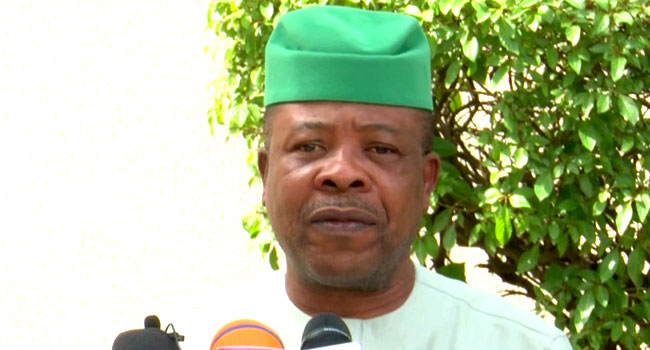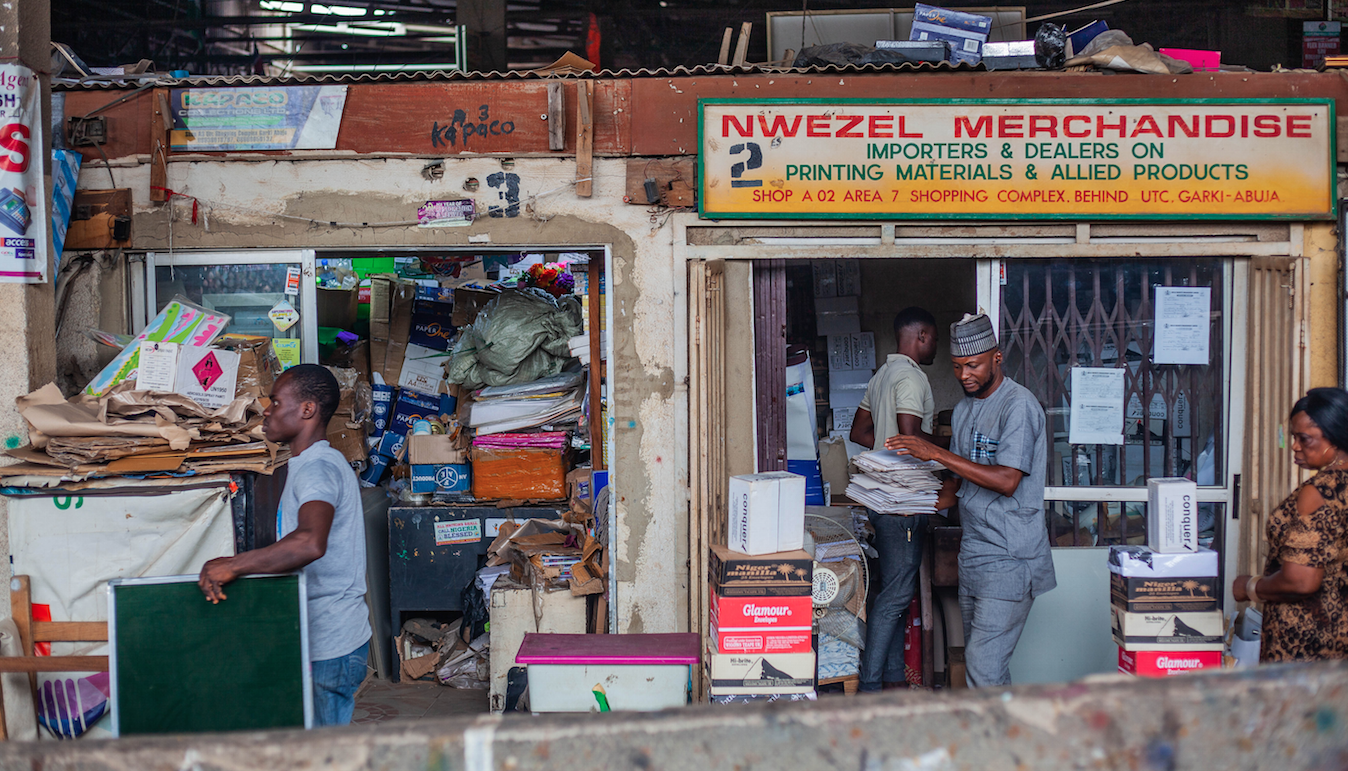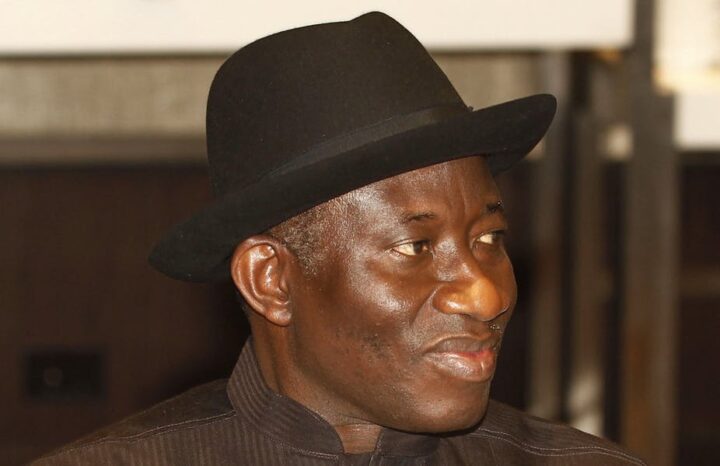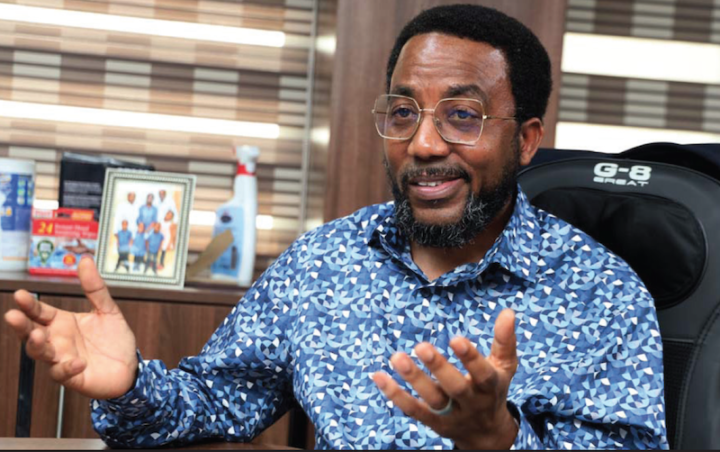SONY DSC
BY JONATHAN UKOR
The 2023 general elections can be likened to a race of the fittest. By fitness, it means every political party must ensure to herald the best candidate for winning the race. In the camp of the All Progressives Congress (APC), many potent names have declared or implied interest to become Nigeria’s No. 1.
Among them are APC national leader, Bola Ahmed Tinubu; Vice President Yemi Osinbajo; minister of transportation, Rotimi Amaechi, among others. To contextualise this prediction, two things are germane: one, the political trajectory of these aspirants; and two, the various cases of godfatherism in Nigeria, viz.:
Bola Ahmed Tinubu
Advertisement
Without a doubt, Bola Ahmed Tinubu (BAT) is the most experienced aspirant in the pack. His political journey began in 1992 as a representative of Lagos west in the Red Chambers. He also played a role in the struggle for democratic government in Nigeria, and eventually became the civilian governor of Lagos state (1999–2007) under the auspices of the then Alliance for Democracy (AD). BAT performed tremendously well as the governor of Lagos state, especially in areas of infrastructure development, payment of workers’ salaries and gratuities to pensioners.
He is dubbed the “Jagaban of Borgo kingdom”, “Lion of Bourdillon”, “Asiwaju”, and even, “The Kingmaker” owing to his prudence in forming the APC alliance that ousted the PDP government from Aso Rock, and installed Buhari as president. Indeed, BAT commands an immense circle of influence in major terrains of the country’s politics — one he spent a lifetime assembling — now, he wants to rule. After all, there is nowhere in the world where a kingmaker cannot himself become king.
Chibuike Rotimi Amaechi
Advertisement
The self-proclaimed “most qualified person to rule Nigeria”, Chibuike Rotimi Amaechi, a graduate of English literature serving as the minister of transportation, is also in the race. Amaechi served as the special assistant to the deputy governor of Rivers state, Peter Odili, between 1992 and 1994. He has represented his constituency as a member of the Rivers state house of assembly and subsequently became the speaker of the house (1999–2007).
Amaechi was also the governor of Rivers state for two terms in office and was among the six PDP governors who defected to the newly formed APC in 2013. He was influential as the director-general of Buhari’s “Change” presidential campaign. Although accused of funding the campaign with state funds, he has persistently denied such allegations. There have been comments that Amaechi may be Buhari’s favourite aspirant, being a more tractable choice than BAT.
Professor Yemi Osinbajo
There have been different narratives on how Professor Yemi Osinbajo (PYO) became President Buhari’s running mate in 2015. The most popular one revolves around the influence of Bola Ahmed Tinubu (BAT), who was the governor of Lagos state at the time PYO was appointed as the attorney-general and commissioner for justice in the state. Logically, we can assume that the influence of BAT pivoted PYO to the Aso Rock.
Advertisement
Even PYO himself has admitted while praising his former boss, that he was appointed as DG and commissioner in Lagos without any prior meeting or acclimatisation with the former governor. In another report, PYO hinted that his former boss did nominate him for the job of vice president of the federation. Obviously, PYO holds a special place in the “kind” heart of Tinubu — maybe BAT sees a younger version of himself in Osinbajo. Consequently, when the favoured son sets eyes on the same bride desired by his “kind” father, there are bound to be broken bones.
Godfatherism in Nigeria
The seed of godfatherism in Nigerian politics is deep-rooted, and very much obvious in the APC political ideology. Godfatherism is the scourge of corruption in Nigeria. There is a recurring pattern of ex-governors desire to remain influential as policy-makers and economic drivers in their state. These desires tend to impose on the extant governor who may have gotten his seat on the back of his predecessor. Often, there are clashes of interest between the supposed “godfathers” and the favoured sons, viz.:
Aregbesola vs. Oyetola
Advertisement
The case in Osun state between Rauf Aregbesola, the immediate past governor of the state and current minister of interior, and Gboyega Oyetola, his successor as governor is notable. There was heightened tension between these two individuals regarding matters of state politics which resulted in a major intra-party conflict in the newly formed APC. To the extent that Aregbesola swore that Oyetola will not return as governor for a second term.
By doing so, Aregbesola assumed the godfather role in Osun state politics, one capable of deciding the fate of the next governor of the state. The minister had favoured and selected Alhaji Moshood Adeoti for the position but was floored in the 2022 Osun APC primaries as Oyetola scored 222,169 votes while Adeoti had only 12,921 votes.
Advertisement
Okorocha vs. Uzodinma
Although, the political relationship between Governor Hope Uzodinma of Imo state and Senator Rochas Okorocha is better described as a “godbrother” relationship, considering that both have served in similar capacities as state governor and Imo west senator. In Nigerian politics, the godfathers want sustained influence while the godbrothers want sustained satisfaction — Uzodinma, however, had a different agenda, as he was bent on frustrating Rochas Okorocha and his family.
Advertisement
The governor had openly accused Okorocha of diverting state funds to sponsor personal projects. This resulted in the seizure and retrieval of some assets owned by the Okorocha family. Both parties have been at daggers drawn, until recently when the governor begged the senator for forgiveness.
Amosun vs. Abiodun
Advertisement
The core of godfatherism is influence, as witnessed in the underground tussle between Ogun state governor, Dapo Abiodun, and his predecessor, Senator Ibikunle Amosun. The latter desired to retain control of the ruling APC in the state, but the governor was adamant about consolidating his hold on power in the state. This led to a rift within the Ogun state APC chapter. Amosun, who had laid the foundation of APC in the state and orchestrated the demise of the PDP, had established a formidable party structure and wanted to remain relevant in it, even after his time in office. He, therefore, played the godfather role in preferring Adekunle Akinlade as his successor, not Dapo Abiodun. However, with the strong support of BAT, Abiodun emerged as the choice of the party, thereby breaking the strongholds of Amosun in Ogun state.
Oshiomhole vs. Obaseki
The factor of godfatherism is equally observed in the 2019 case between Adams Oshiomhole and Governor Godwin Obaseki in Edo state politics. The incumbent governor of Edo state, Godwin Obaseki had been favoured by his predecessor. The former governor, Oshiomhole, had described Obaseki as the “brain and creativity” behind his own administration. However, after a number of disputations which erupted between the duo, their political bromance dissolved and a heated enmity exuded.
The favoured son began to dictate terms of visit and association to his erstwhile “father” in order to limit the influence of Oshiomhole on decision-making affairs in the state. BAT, who supported the embattled Oshiomhole at the time, remarked that the attack on Oshiomhole’s personality was a strategy by the opposition to gain leverage in the 2023 elections. The eventual triumph of Obaseki on the platform of the People’s Democratic Party (PDP) truncated the godfather factor, causing a major shift of power and ideology in the state.
Tinubu vs. Ambode
Ex-governor Akinwunmi Ambode fell out of grace in Lagos politics when his plans didn’t align with those of the godfather, the Lion of Bourdillon, Asiwaju Bola Ahmed Jagaban Tinubu. BAT has been accused of being domineering and self-indulgent with the intent to siphon all the resources of Lagos state to himself. Some say that the perceived trait from Ambode was the actual cause of the fallout between the duo. Since the 1999 handing over to democratic rule, Akinwunmi Ambode is the only governor of Lagos state that served for only a single tenure, Tinubu had favoured a more “visionary and committed” Babajide Sanwo-Olu. It is pertinent to remain engraced by BAT for a healthy and prosperous political career in Lagos — Governor Sanwo-Olu knows this and has unashamedly expressed his loyalty via the SWAGA’23 political campaign.
The prediction
If the game of politics in Nigeria is an adult puzzle, BAT is The Wiz. Being the national leader of the All Progressives Congress since its formation in 2013, BAT can be ascribed the role of father to the 22 governors who won their state mandate under his leadership. Despite the fact that there is no constitutional provision for the position of a national leader in the party; the highest-ranked party executive is actually the national chairman. It is ordinarily assumed that the ruling president should be the party’s overall national leader, however, Tinubu proudly performs that role, thereby authenticating his godfather status in Nigeria politics, even above the No. 1 citizen.
The APC constitution validates the nomination of candidates for any elective position in the country “through direct or indirect primary election to be conducted at the appropriate level,” where “the candidate with the highest number of votes shall be announced as the winner accordingly”. For the selection of APC flagbearer in the imminent 2023 general election, preference resides in the votes of 7,800 delegates in the party. The delegates comprise the national chairman, one member of NEC from each state, serving and past presidents and vice presidents, serving and past governors and deputies, serving and past lawmakers (both federal and state), past speakers, deputies, and principal officers of the state houses of assembly, and past members of the National working committee (NWC), among others. Getting a presidential ticket is hence determined by matters of selfish preference or/and the number of delegates one can convince for a vote.
Following the declaration to contest for the presidency by 10 members of APC and a few other pending declarations, the APC presidential primary election has been the major talking point in the country. The date of the primaries has been slated for May 30/31, and there have been speculations on who will emerge as the party’s choice. Most of these speculations revolve around Bola Ahmed Tinubu and Vice President Yemi Osinbajo, — (Rotimi Amaechi may count as a side thought). On the surface, the odds favour the Asiwaju camp, considering the support he has in major states such as Kano, Katsina, Borno, Lagos, Osun, Niger, and Kwara. PYO, on the other hand, relies on the endorsement of his boss, the president, Muhammadu Buhari, and on the factors of age and sound health, which some suppose are Tinubu’s deficiencies. PYO also rely on providence and the fervent prayers of the RCCG.
Several Twitter polls have projected Osinbajo as the better candidate. If circumstantially, this happens, it may be the end of godfatherism in Nigeria. As highlighted above, cases of clashes between a “favoured son” and the “kind father” in the past, where the son emerges victorious have resulted in dampening the influence and control of the godfather in such a system. This was evident in the Aregbesola-Oyetola case in Osun state, the Amosun-Abiodun case in Ogun state, and even more significantly symbolic, in the Oshiomhole-Obaseki case in Edo state. We can assert that this will be the case if Osinbajo triumphs — a final debacle on the godfathers.
Also, banking on the unpredictability of Nigerian politicians, loyalty is ludicrously dynamic. Considering that the APC governorship primaries are set for May 11, which is 19 days before the presidential primaries, we could also predict a betrayal scheme by the so-called supporters of BAT, especially the incumbent governor of Lagos state. These supporters may and can betray BAT after securing a re-run ticket in their state — why? because no way enjoys being manipulated, not even in the guise of godfatherism. At the moment, it is a mere matter of time — the APC presidential election could have a colossal impact on the course of Nigerian politics.
Ukor can be reached on Twitter @jon_ukor
Views expressed by contributors are strictly personal and not of TheCable.
Add a comment






